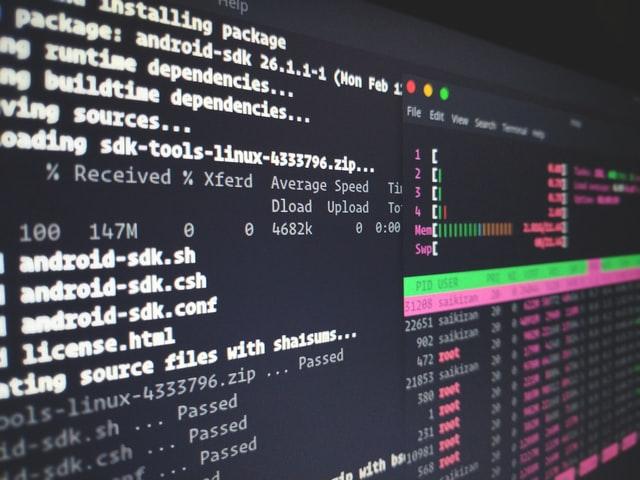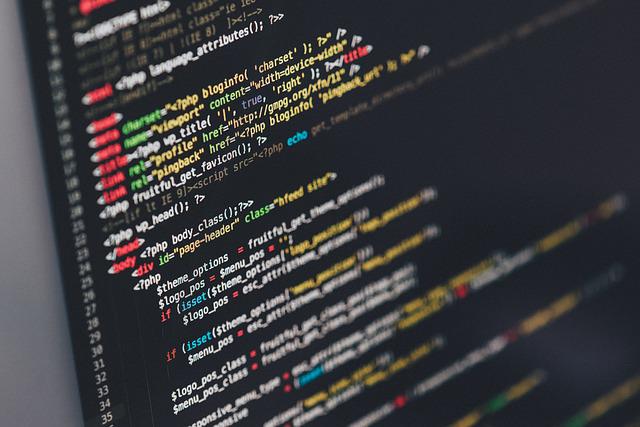The human brain is a wonderful thing but it has limitations, one of them is the speed at which we can process things. As humans, we use algorithms to process information more efficiently. Algorithms are a set of instructions that act as a guideline to perform a certain task such as adding the number of people in a room.
And in computer science it is pretty much the same, the algorithm is a set of code for instructing and solving some problem step-by-step. With the first computer algorithm, inputs were made by humans and the output was the desired result. But now, codes have gone far past this, they can learn, adapt and evolve to the point where we are not shaping the algorithms but the algorithmic code is shaping us.
As technology keeps advancing and everything keeps going digital, we’ve reached a point where algorithmic programs are everywhere and are controlling everything. They are shaping our culture, what we see, what we hear, and also how we live. Algorithmic rules have gotten past a line where they can do things better than humans.
Computers have reached a point where they can think and algorithms can learn while data is fed into them. They can learn from other algorithms and create their own instructions too. But the basis of it is still the same, where data goes into the instructions and the result comes out.
More than 65% of all transactions such as trades and equities in the US are now done by algorithms. Algorithmic code resides inside machines and servers that are connected as close as possible to each other to exchange information at the speed of light. There’s a lot of computation happening behind algorithms.
Computers can do different kinds of calculations through billions of lines of code. Algorithms have become layer upon layer of codes to the point where discerning order from them is next to impossible for a human. Coding is the algorithmic instruction that a computer runs. It is the language that computers can actually understand.
They’re taking over everything now, peoples are taking codes to places and all sorts of fields that once were unimaginable to make life better. We all know that algorithms make our lives better, but what exactly are they?

Contents
What are algorithms?
An algorithm is a set of steps that solves a specific problem. It is the building block of computer programming and is what makes a website or device work smoothly. They are made up of code and pseudocode written by computer programmers. It is a systematic way to solve a problem, which is why algorithms are so important.
All types of programs and applications rely on algorithms to work properly. These codes govern everything from how the dishwasher to the placement of shadows in digitally animated movies. Algorithmic codes are written in such a way that they can be understood by computers but they also require a lot of precision to do the job well.
Algorithms were named for a clever man in Baghdad. Al Khwarizmi is credited with the introduction of the first algorithm. This man’s book, called Algorithmi de numero Indorum, laid the foundation for the decimal system and helped develop the decimal system. It also established the basis for modern mathematics.
Often, algorithms are written in “excruciating detail” so that computers can understand them. One type of algorithm involves breaking a problem into smaller parts and solving each one separately. These are then combined into a single solution. Another type is backtracking. It starts by comparing the first two elements of a list and swapping them until the list is fully sorted.
The third type is insertion sort, which compares each element to its previous elements, swapping smaller elements. There are various other types of algorithmic programs. The most important thing is to make sure that the inputs and outputs of an algorithm are clearly defined. Another type used in machine learning is the support vector machine.
It’s a type of learning algorithm based on statistical learning theory. Its use has expanded to many fields, including bioinformatics, multimedia information retrieval and pattern recognition. It can also be used in supervised learning, where data is labeled and algorithms are trained with it. This is a simpler method than unsupervised learning, where data is not labeled.

Why algorithms are important?
Regardless of the field, you work in, the importance of an algorithm cannot be understated. Today, almost every traditional device has a sense of intelligence and communication. The software behind these devices is the engine that propels technological advancements. Every software program is made from a standardized logic or solution to a problem.
Aside from solving a particular problem, algorithmic coding is also being used to tackle bigger issues. They can be developed to search through petabytes of data. However, even simple code can do amazing things and some of them deserve recognition as revolutionary. In today’s world, coding is at the forefront of innovation and technological advancement.
Although an algorithm is often used to solve complex problems, they are also the backbone of a computer program. They are the code that gives a computer specific instructions to complete a task. From social media to computer games, algorithmic codes are the foundation for digital technology. They are key to problem-solving and can be found in nearly every aspect of modern life.
While computers are powerful and fast, they are not infinite. Memory space and running time are finite resources. By defining computational complexity, computer scientists can predict how fast or inefficient a program will run. This gives them a benchmark to compare the behavior of a program.
The complexity of an algorithm is a factor of time and space. A complex program will take more time to run with sorted input than one that is random. Algorithmic codes are widely used in many fields, from airline pricing to predicting the success of a Hollywood blockbuster. From credit card fraud detection to matching Uber drivers with passengers.
In addition to predicting the success of a movie, they can also be used to optimize processes and create new revenue streams. They are essential components of any successful business. The PageRank algorithm, for example, was developed by Larry Page and Sergei Brin during the early days of Google.

Google eventually outperformed all competitors and dominated the search market. Page and Brin were soon rich and become a household name, thanks to their algorithm. This simple process made the word “Google” a verb. It was one of the most crucial factors in Google’s success.
Besides being indispensable for the creation of programs and websites, algorithms can make life easier. The most obvious benefit is that they are fast and save us time. For example, they can help us to find the shortest route, the best parking space, or even the best airline ticket. In addition to saving time, algorithms can also help us express our thoughts and solve problems.
Facebook and other tech giants use algorithmic codes to make tasks faster. These programs can sort large data sets more efficiently. Algorithms work by combining input values with output values. In a search engine, a search query is the input value and the code will then scour its database for relevant information.
As the search results appear on the screen, the algorithm identifies relevant information and delivers the results. The programming code also allows Facebook to decide what’s appropriate for our profile. These codes play a crucial role in creating efficient programs. Different algorithmic code can be used for the same problem. It may even detect a pattern that humans can’t see.
Everything is controlled by algorithms
Algorithms are mathematical coding structures that can perform a variety of tasks, from leafing through billions of Internet documents every second to modeling the ocean’s future conditions. They also play the role of digital matchmakers, drawing soul mates from the ever-deepening tide pool of personal data. They are the dynamic core of applications.
We live in an increasingly algorithmic world. Algorithmic programs are responsible for everything from driving cars to determining what to order at a restaurant. From Google Maps to Pixar’s coloring algorithms. They can analyze a huge amount of data to deliver a better experience. They are also the backbone of almost everything we use every day.
Algorithms have become more complicated than we once imagined. It isn’t just a series of steps designed to accomplish a task nowadays. It’s the science behind computer science and a good algorithmic code makes a great program. Computer programs are the brains of the internet. They decide what you know and do.
The algorithmic codes are so complex nowadays that they control our lives without us even realizing it. The mouse is an excellent example of an algorithm in action. It keeps you focused on the task at hand while incorporating a vast amount of information. It translates options so you can save time.
In the age of algorithms, predictive analytic tools are increasingly taking over the line of work previously performed by humans. This will lead to an increased need for ethically sound decisions as to the use of AI programs expand. While there are many benefits of artificially intelligent algorithms, the truth is that their use has a price.
Companies have to collect massive amounts of data on their users to make these decisions. And consumers are providing that data as every gadget nowadays is like a tracking device. The future of artificial intelligence depends on a new generation of algorithmic codes that can make sense of vast amounts of data.
New generations of codes must be able to process data in real-time and produce useful value. Advancements in digital capitalism and social media have given us the data we need to make algorithms smarter. As these algorithmic codes get better, we will see more applications and innovations in our daily lives.
Algorithms are created to analyze large amounts of data and provide the best response or pre-programmed procedure. Its reputation for neutrality and fairness is growing and they’re making its way into commercial and public decision-making. While some of these decisions may be unthinkable, others aren’t so far-fetched.
However, while these codes can be very useful for certain purposes, these tools are often unavoidably unethical in other contexts. There are several reasons why this phenomenon is troubling, but they all revolve around the fact that tech giants can change how information is consumed and filtered.
Despite their apparent benefits, programming codes are not perfect and are prone to fostering discrimination, bias and misinformation. Moreover, delegating decisions to a set of automated instructions is dangerous. Not only can algorithms create problems, but they can also perpetuate conspiracy theories and fake news.
Sometimes the codes we rely on are complex, imperfect and drawn from past data. Therefore, they are prone to making mistakes that have unintended consequences. If you don’t know how algorithms control your life, now’s the time to begin asking yourself questions about the impact of such technology on our lives.
In fact, algorithms have been around for millennia. They were created to solve specific problems. For example, Ada Lovelace wrote the first algorithm for Babbage’s analytical engine, a Turing-complete computer. Lovelace’s algorithm was never fully implemented until several decades after her death.
Hence, we may be living in the age of algorithms without even realizing it. At the end of the day, whether executed by computers or humans, algorithms are just a set of instructions that we use to solve problems.

0 Comments